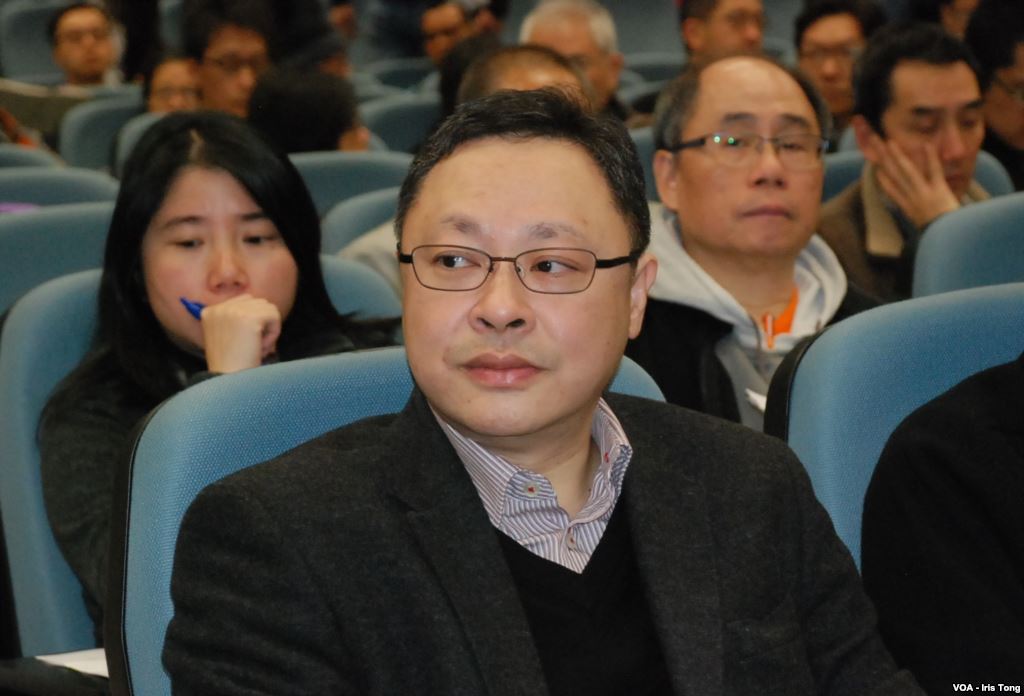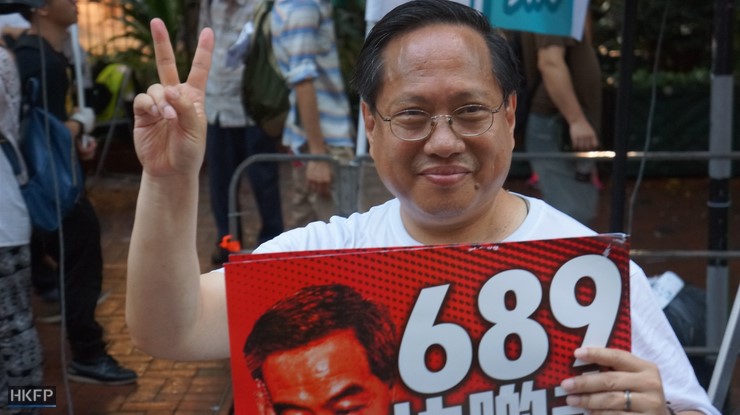The emergence of new parties advocating for self-determination, such as Demosistō, which officially launched on Sunday, have received mixed reactions from the pan-democratic camp. Democratic Party lawmaker Albert Ho Chun-yan warned that these groups may lead to the fragmentation of the camp, while a Chinese University lecturer said that radical parties such as the League of Social Democrats and People Power are most threatened by the new groups.
Power for Democracy, a political body which intends to coordinate the pan-democratic camp in elections, held a meeting on Sunday. Convenor Andrew Chiu Ka-yin said that different groups advocating self-determination may have varying attitudes towards whether they were willing to engage in discussion and that they would first speak to the eight major democratic parties, RTHK reported.

Push for unity
At the meeting, University of Hong Kong legal scholar Benny Tai Yiu-ting introduced the Thunderbolt plan – which proposed coordinating the pro-democracy forces to attain over 50 percent of the seats on the upcoming Legislative Council elections in September – and said that they are planning to hold a primary for the “super district council” seats. He also suggested the parties sign an agreement in case they later went back on their promise, Oriental Daily reported.

Demosistō, the political party formed by student leaders behind the pro-democracy Occupy protests in 2014, officially launched on Sunday. The party advocates self-determination and will be pushing for a referendum on the matter. On Monday, Demosistō chairman Nathan Law said that he did not see the possibility of Hong Kong independence in the near future, but that discussion on the topic should not be suppressed.
‘Fragmented or severed’, says lawmaker
Democratic Party lawmaker Albert Ho Chun-yan said Beijing may welcome the formation of new groups advocating self-determination.
“It’s possible that the pan-democracy camp in Hong Kong would be fragmented or even severed, and the pro-establishment camp would then dominate. There’s a huge risk. Beijing might not be unhappy to see this, they think that within the pan-democracy camp, the messier their affairs are the better, the more radical the better, because they would then alienate the mainstream crowd and isolate them from politics,” he said.

Ho said they did not know whether they would be coordinating with these new political parties in the upcoming elections. He also said that he would not question his identity as a Chinese person just because he disagreed with the country’s governance and leadership.
Civic Passion’s Wong Yeung-tat said these “umbrella groups” were more similar to the traditional pan-democratic camp and was not worried that they would pose a threat to their votes, as the two differed in terms of their image and the actions steps they advocate. Chinese University of Hong Kong lecturer Ivan Choy Chi-keung said that radical political parties such as People Power and the League of Social Democrats will face the biggest challenge from these groups.
